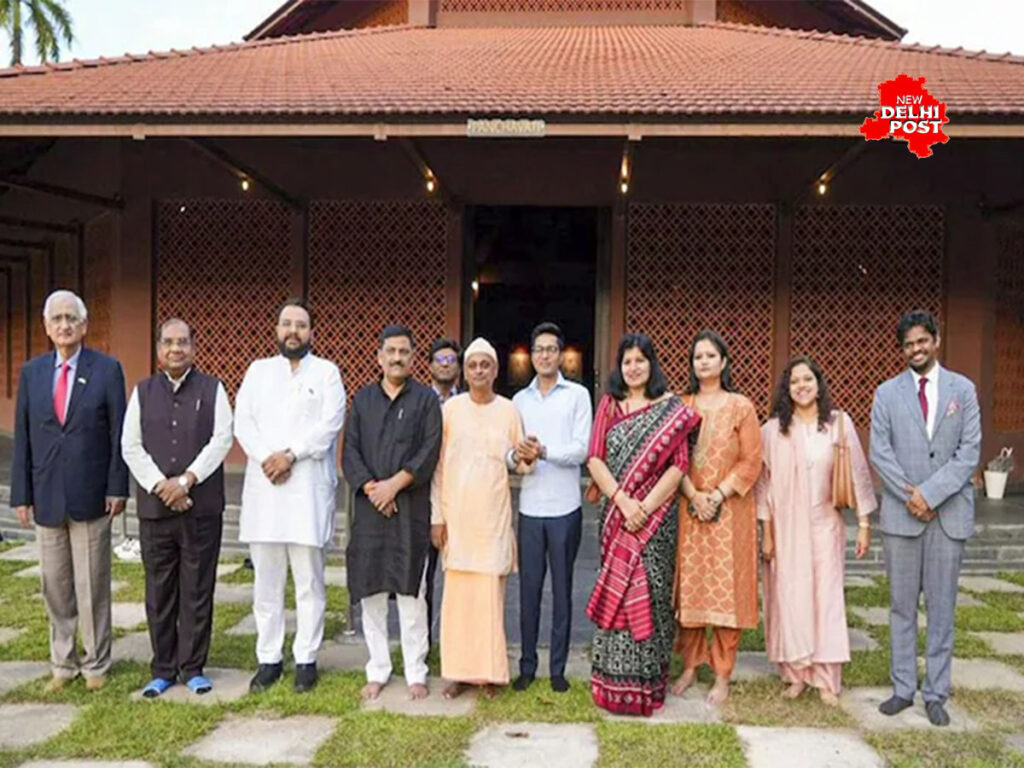Pakistan’s diplomatic maneuver to disrupt India’s outreach in Malaysia backfires, reinforcing India’s global anti-terrorism narrative.
New Delhi: Pakistan attempted to sabotage an Indian parliamentary delegation’s visit to Malaysia by invoking Islamic solidarity and raising the Kashmir issue, but Malaysia rejected the interference, sources told Agency. The delegation, led by JD(U) MP Sanjay Jha, proceeded with all planned programs, marking a significant diplomatic setback for Islamabad.
Pakistan’s Failed Diplomatic Ploy
The Pakistani embassy urged Malaysian officials to cancel the Indian delegation’s events, arguing, “We are an Islamic country, you are an Islamic country, don’t listen to the Indian delegation,” according to sources cited by Agency. Despite these efforts, Malaysia extended full support to the Indian team, which included BJP MPs Aparajita Sarangi, Brij Lal, Pradan Baruah, and Hemang Joshi, TMC’s Abhishek Banerjee, CPM’s John Brittas, Congress’s Salman Khurshid, and former diplomat Mohan Kumar. The delegation’s programs, aimed at exposing Pakistan’s role in cross-border terrorism, went ahead as scheduled, highlighting Malaysia’s commitment to regional peace.
India’s Global Anti-Terror Campaign
The Sanjay Jha-led delegation was one of seven all-party groups dispatched to 33 countries to brief global leaders on the April 22, 2025, Pahalgam terror attack, which killed 27 civilians, and India’s retaliatory Operation Sindoor. The delegation visited Japan, South Korea, Singapore, Indonesia, and Malaysia, emphasizing India’s zero-tolerance policy toward terrorism. Sanjay Jha told Agency, “Our visits underscored global condemnation of the Pahalgam attack and support for India’s precise strikes on terror camps in Pakistan and Pakistan-occupied Kashmir.” The delegation also urged action against Pakistan by the Financial Action Task Force (FATF) for its continued support of terrorism.
Kashmir Gambit Falls Flat
Pakistan’s attempt to leverage the Kashmir issue to disrupt the delegation’s itinerary gained no traction. A 2024 report by the South Asia Democratic Forum noted Pakistan’s repeated use of Kashmir to deflect criticism of its terror sponsorship, a tactic increasingly ignored by nations prioritizing regional stability. Malaysia’s rebuff aligns with this trend, as it reaffirmed its anti-terrorism stance during meetings with the Indian delegation, including a briefing with Speaker Johari Abdul. TMC MP Abhishek Banerjee, addressing the Indian diaspora in Kuala Lumpur, asserted, “Dialogue with Pakistan is futile until it relinquishes Pakistan-occupied Kashmir.”
Broader Diplomatic Implications
This incident underscores India’s growing diplomatic clout and Pakistan’s diminishing influence, even among Muslim-majority nations. Dr. Sreeram Chaulia, a foreign policy expert, told Agency, “Malaysia’s rejection of Pakistan’s plea reflects a broader global fatigue with Islamabad’s terror-linked narrative.” The Indian delegation’s success in Malaysia and other nations strengthens India’s case for isolating Pakistan diplomatically, especially after Operation Sindoor’s precise strikes on terror infrastructure. Posts on X echoed this sentiment, with users praising Malaysia’s snub as a blow to Pakistan’s “nefarious designs.”
Looking Forward
As India’s delegations continue their global outreach, the focus remains on building a coalition against state-sponsored terrorism. The Monsoon Session of Parliament, set for July 21, 2025, is expected to see heated debates on Operation Sindoor and the Pahalgam attack, with the opposition likely to press for greater transparency. Meanwhile, Pakistan’s failed attempt in Malaysia highlights the challenges it faces in countering India’s assertive diplomacy, setting the stage for further geopolitical shifts in South Asia.


